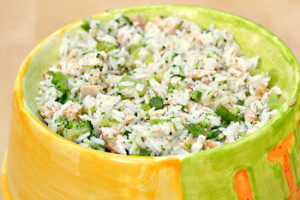 Pet food manufacturers are recalling pet food at an alarming rate. Pet owners worry over the possibility of feeding pets’ contaminated and unsafe food. The stress is turning some owners towards a healthy and safer alternative. The homemade pet food trend has been on the rise for the past five years. With the organic food movement taking humans by storm, it is only natural that eventually it would reach our pets bowls. In addition to keeping pets safe from negligent manufacturing plants, homemade pet food provides additional benefits. Pets who eat homemade pet food show natural weight loss and owners are finding their wallets are a bit thicker.
Pet food manufacturers are recalling pet food at an alarming rate. Pet owners worry over the possibility of feeding pets’ contaminated and unsafe food. The stress is turning some owners towards a healthy and safer alternative. The homemade pet food trend has been on the rise for the past five years. With the organic food movement taking humans by storm, it is only natural that eventually it would reach our pets bowls. In addition to keeping pets safe from negligent manufacturing plants, homemade pet food provides additional benefits. Pets who eat homemade pet food show natural weight loss and owners are finding their wallets are a bit thicker.
Save Money
Purchasing specialty pet food can impact a family’s budget severely. For parents of obese pets or pets with digestive issues, prescription diet food can cost over $2 a can for wet food, or over $40 a bag for dry food. According to thebark.com with careful calculation, a family can save at least $1 a day by choosing homemade pet food. This includes the addition of quality supplements. That’s $30 a month and $365 a year for providing a healthier food source for your pet. That’s a bonus, not just for Spike and Mr. Scuffles but also for your wallet.
Fight Obesity
Every pet food brand has a dedicated line for overweight pets. However, chubby pugs and fat cats still struggle with additional pounds. Companies make diet pet food with more filler and fewer calories. Fillers are devoid of protein and full of additives; leaving your dog or cat hungry after a meal. Is your pet sitting next to their bowl an hour after dinner? Do you give in and give them a treat thus defeating the diet food purpose? Cooking homemade pet food provides clean, healthy nutrients without additives or fillers. Removing the unnecessary additives from your pet’s food can help get their weight under control. Combining natural foods and slightly smaller portions may shrink low hanging bellies without starvation.
Parents should keep in mind the following when switching to a homemade diet:
- Recipes need to have sufficient nutrient essentials. All meals should contain a protein source, a carbohydrate source, sufficient vitamins and minerals, and some fat.
- Small dogs may require extra digestive support. Commercial dog food includes probiotics that help digest and push out waste. Supplements can be added to homemade food to ensure digestive health.
- All pets may need additional supplements based on their age, activity levels, and specialty needs. Ask your veterinarian about calcium, magnesium, iron, and zinc levels prior to adding them to foods or removing them.
- Pets may be born scavengers, but don’t feed them scraps. Pets should never eat macadamia nuts, chocolate, tea, coffee, raisins, grapes, onions or high amounts of garlic
Check with your veterinarian to make sure you are providing adequate proteins, carbohydrates, fats, and minerals in homemade pet food





